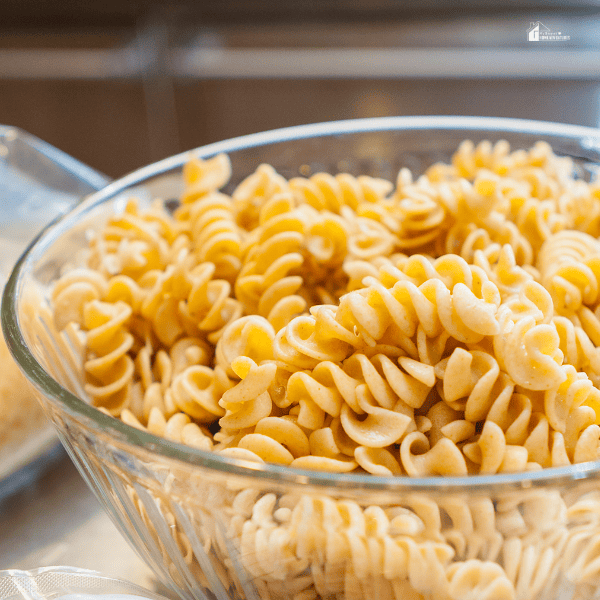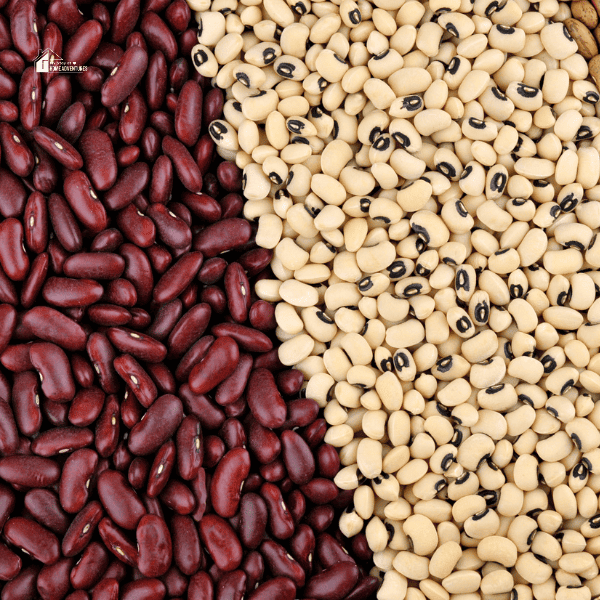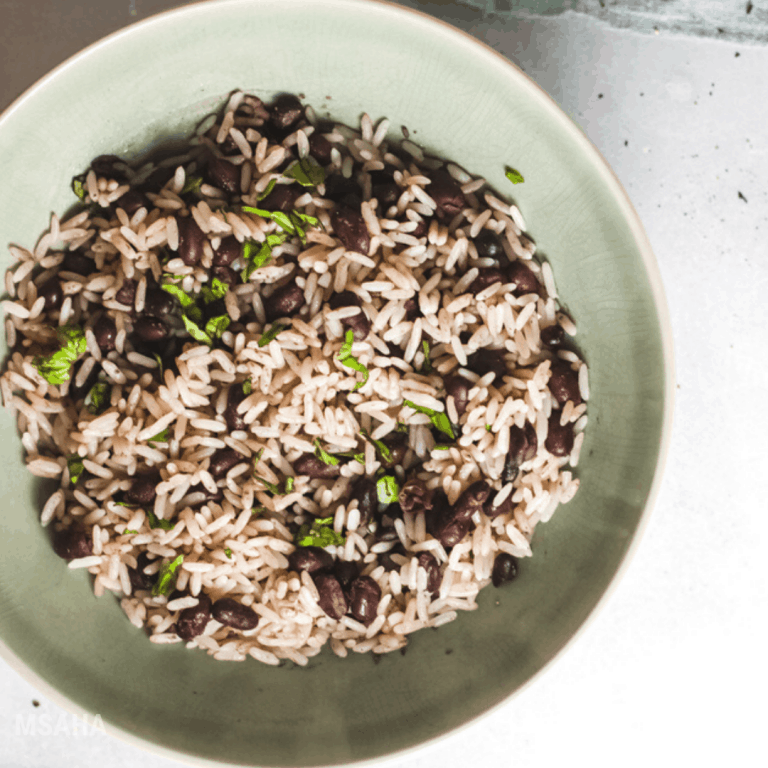Greening Your Kitchen – Sustainable Practices for a Greener Plate
This post may contain affiliate links which might earn us money. Please read my Disclosure and Privacy policies hereIn the heart of every home, the kitchen stands as a bustling hub of activity, where the aroma of delicious meals mingles with the clinking of utensils and the sizzling of pans. But as we whip up culinary masterpieces, it's essential to consider the impact our kitchen habits have on the environment.
This guide is your passport to creating a greener kitchen—one that not only nurtures your love for cooking but also contributes to a healthier planet.

Conscious Cooking Choices
Embark on a culinary adventure that not only tantalizes your taste buds but also respects the environment. Make conscious choices when selecting ingredients, opting for local and seasonal produce. Not only does this decision support local farmers, but it also significantly reduces the carbon footprint associated with transporting food over long distances.
Introduce plant-based meals into your repertoire, experimenting with flavorful recipes that showcase the richness of nature's bounty. By minimizing your reliance on animal products, you contribute to reducing greenhouse gas emissions and promote a more sustainable food system.
Waste Not, Want Not: Reducing Kitchen Waste
In the dance of pots and pans, let waste reduction be your guiding partner. Dive into the world of composting, transforming kitchen scraps into nutrient-rich soil for your garden. Establish a composting system that aligns with your needs and available space, whether you opt for countertop compost bins for daily scraps or set up a sturdy outdoor compost heap for larger quantities.
You can also equip your kitchen with reusable containers and beeswax wraps, making single-use plastics a thing of the past. Master the art of mindful meal planning, ensuring that each grocery purchase aligns with your culinary ambitions, minimizing food waste and maximizing taste.
The Magic of Meal Prep
Unlock the secret to stress-free and sustainable cooking with the magic of meal prep. Embrace the efficiency of preparing ingredients in advance, saving both time and resources. Plan your meals strategically, allowing you to purchase ingredients in bulk and reduce packaging waste.
Discover the joy of batch cooking, where a single culinary effort yields multiple meals. Not only does this approach simplify your daily routine, but it also minimizes the environmental impact of food production and distribution.
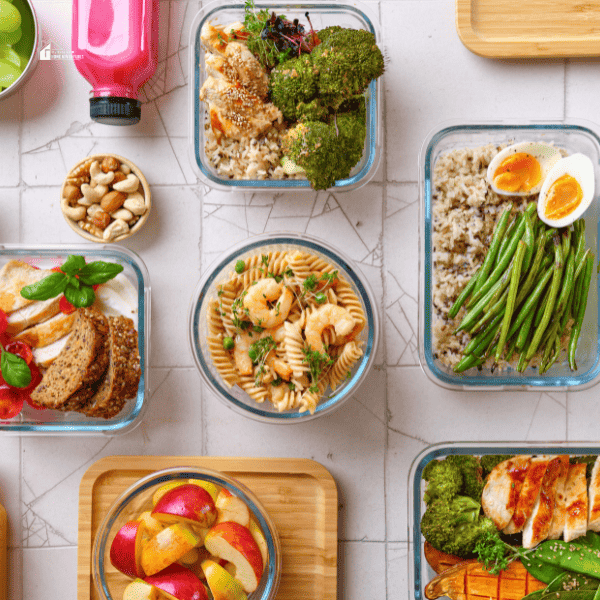
Energy-Efficient Cooking
The kitchen's heartbeat is its appliances, and their energy consumption shapes the environmental melody. Embrace a more sustainable kitchen by investing in energy-efficient appliances. Explore induction cooktops, known for their precision and reduced energy consumption compared to traditional stovetops.
Convection ovens, with their ability to circulate hot air, offer quicker and more even cooking, minimizing overall energy use. Remember, size matters—match pot sizes to burner sizes, optimizing energy transfer and efficiency. And when the cooking symphony is complete, keep lids on pots and pans to reduce cooking times and conserve energy.
Repairing Your Appliances: A Sustainable Solution
In the symphony of a sustainable kitchen, the concept of repairing appliances harmonizes beautifully with your goal of reducing waste. Instead of succumbing to the cycle of regular replacements, consider the eco-friendly path of repairing your appliances with spare parts.
When a beloved kitchen companion, be it a blender, refrigerator, or dishwasher, starts showing signs of wear and tear, the instinct may be to replace it with a shiny new model. However, this cycle of disposal contributes to the mounting issue of electronic waste. By opting to repair rather than replace, you not only extend the lifespan of your appliances but also significantly reduce your environmental footprint.
One trusty resource for appliance spare parts is McCombs Supply Company. Whether you need a replacement heating element for your oven or clothes dryer spare parts, they provide a wide array of high-quality spare parts. This not only saves you money compared to the cost of a new appliance but also contributes to the larger effort of sustainable living.
Water Wisdom in the Kitchen
Water, the lifeblood of the kitchen, deserves our conservation efforts. Begin with small changes—fix leaky faucets promptly and consider installing low-flow aerators to reduce water usage without sacrificing functionality.
When washing dishes, adopt water-saving habits such as filling the sink or using a basin. Collect rainwater for your plants, transforming a simple barrel into a sustainable water source. Be mindful of water quality, using natural soaps and detergents to minimize the environmental impact of kitchen wastewater.
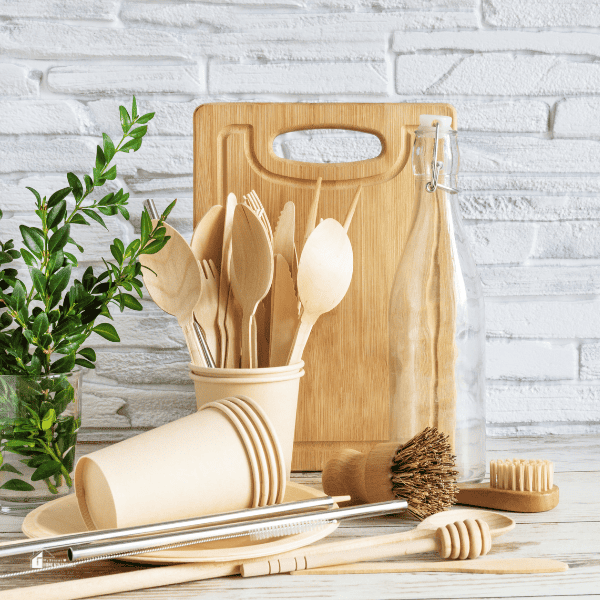
Sustainable Kitchenware Choices
The tools of your culinary craft wield significant influence over the sustainability of your kitchen. Elevate your kitchenware choices by embracing durable, high-quality materials. Consider bamboo utensils for their strength and sustainability, and opt for stainless steel options that stand the test of time.
Delve into the world of eco-friendly cutting boards, exploring designs crafted from reclaimed or sustainably sourced wood. When it comes to pots and pans, align your choices with brands committed to ethical and sustainable manufacturing practices, ensuring your culinary adventures leave a positive impact on the planet.
Committed to Composting
Composting, the alchemical process of transforming kitchen waste into garden gold, stands as a cornerstone of a sustainable kitchen. Establish a composting system that integrates seamlessly into your culinary routine. From countertop compost bins for fruit and vegetable scraps to outdoor compost heaps for larger quantities, find a rhythm that suits your lifestyle. Embrace the science of composting, layering green and brown materials to create the perfect balance for efficient decomposition.
Avoid composting meat or dairy, which can attract pests and slow down the process. As your kitchen waste metamorphoses into nutrient-rich compost, you become a steward of both your kitchen and the broader environment.
Seasonal Sensations: Embracing Local Flavors
Embark on a culinary journey that mirrors the changing seasons, celebrating the vibrancy of local flavors. Embrace the joy of seasonal cooking, where each month introduces a new palette of ingredients to elevate your dishes. Engage with local farmers' markets, connecting directly with growers and supporting the community's agricultural heartbeat. Consider joining a community-supported agriculture (CSA) program, transforming your kitchen into a canvas for local, seasonal produce.
As you infuse your meals with the richness of the present season, you become not just a chef but a steward of the land, embracing a sustainable approach that honors both your palate and the planet.

Mindful Cleaning Habits
In the post-meal serenity, let mindful cleaning habits complete the cycle of sustainability in your kitchen. Navigate the world of eco-friendly cleaning products or craft your own concoctions using simple ingredients like vinegar and baking soda. Swap disposable paper towels for reusable cloth alternatives, minimizing waste and reducing your kitchen's ecological impact.
Consider the life cycle of your cleaning tools, choosing durable options that stand up to frequent use. When operating your dishwasher, maximize efficiency by ensuring it's fully loaded before each cycle, conserving both water and energy.
Lighting the Green Way
While the kitchen's focus often centers on cooking and waste reduction, the lighting within this culinary sanctuary also plays a role in environmental impact. Illuminate your kitchen with eco-conscious choices by switching to energy-efficient LED bulbs.
These bulbs not only consume less electricity but also have a longer lifespan, reducing the frequency of replacements. Embrace the power of natural light during the day, strategically placing mirrors or reflective surfaces to maximize sunlight and minimize the need for artificial lighting.
A Greener Kitchen, A Greener Tomorrow
In the heart of your home, the kitchen becomes the canvas for a greener tomorrow. By embracing conscious cooking choices, minimizing waste, and making sustainable kitchenware choices, you're not just creating flavorful meals—you're contributing to a healthier planet.
So, let your kitchen be a beacon of sustainability, where every stir of the spoon is a step towards a greener, more vibrant future!




